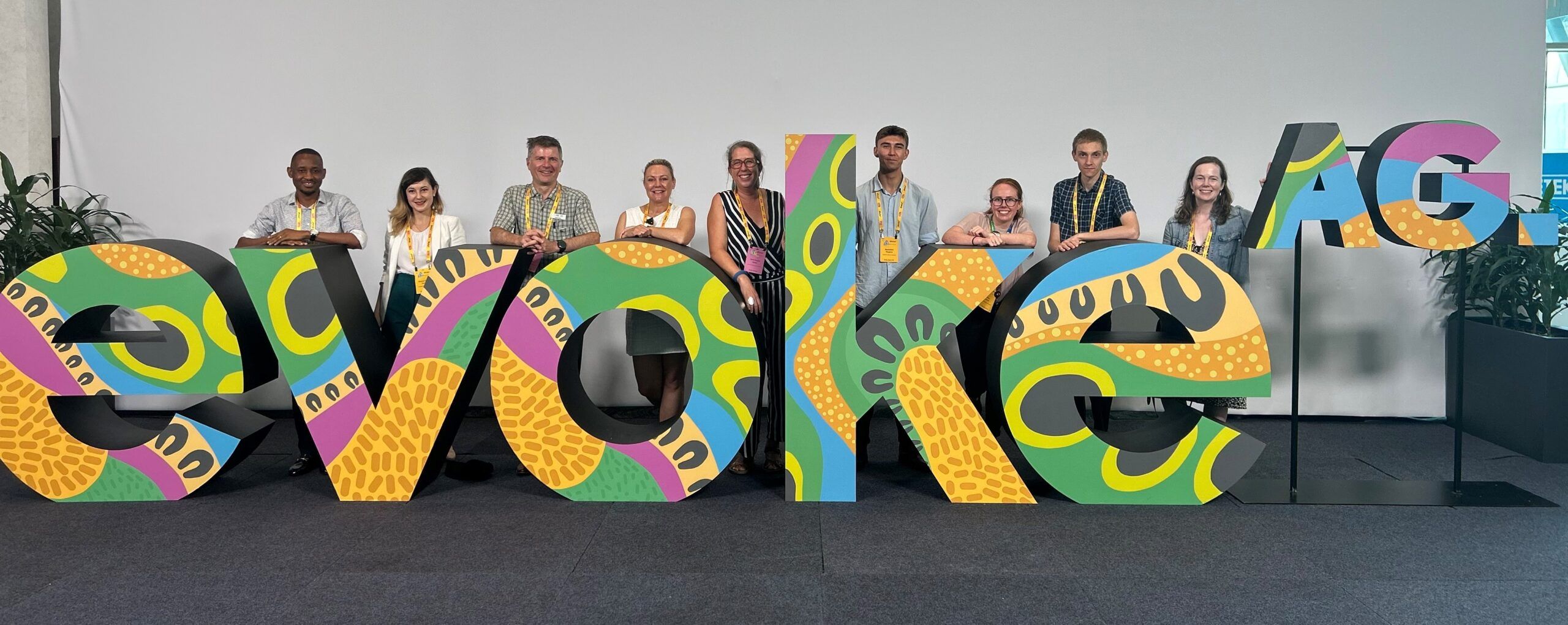At the Agrifood Innovation Institute we are focused on connecting the best and brightest ANU researchers and students with industry to create the innovative solutions the agrifood sector needs. And one of the best places every year to build these connections is evokeAG!
This is why we once again partnered with AgriFutures to present evokeAG 2024, Australia’s largest agrifood tech event. Held on 20 and 21 February in Perth, evokeAG brought together farmers, innovators, researchers, corporates, government and investors in one place to tackle the challenges and opportunities facing Australia’s agrifood sector.
After a competitive process, we selected and supported six high-performing ANU students with an interest in the agrifood sector to attend the event. The students came from the Fenner School of Environment and Society, Crawford School of Public Policy, Research School of Economics and Research School of Management, School of Engineering and School of Regulation and Global Governance, demonstrating the strong interest from across disciplines in future careers in ag.
Bronte Clifford (Bachelor of Environment and Sustainability student at the Fenner School) was one of the ANU students who travelled to Perth for the event.
“It was inspiring to see the wide variety of businesses and organisations who are working not only to improve efficiencies, but to grow a more sustainable agrifood sector that helps to heal the planet,” Bronte said.
Roxana Tompea (PhD student at the School of Regulation and Global Governance) also attended and said she was impressed by the way evokeAG provided a seamless platform for different experts and stakeholders to learn about each other and find synergies for potential partnerships.
Roxana said the event was thought provoking, in particular highlighting issues around climate change risks from Australian producers.
“The issues Australian food producers are facing today are not isolated. Globally, food is becoming more politicised and vulnerable to negative externalities such as natural hazards, resource depletion, increased costs of production and transport, pollution, and high water and energy prices,” Roxana said.
“Climate change affects all businesses, regardless of their production processes or geography, and learning to produce better (and smarter) with less (fewer resources) will define how the ag industry develops in the future.”
She also noted that while it was great to see innovative uses of technology in industries including honey, protein and truffle production, the regulation of these technologies often lagged behind their useage.
“There were impressive technological developments in various industries, but the environmental efforts and certifications attached to these developments are either outside current regulatory regimes or too far ahead. [For example, some of] these sustainable products are not labelled appropriately and cannot fully compete on the market for green products.”
The issues facing the agrifood sector are issues which affect us all, and they will require long-term investment, cooperation and innovative thinking to solve. To learn more about how AFII is investing in work to support a profitable, sustainable and equitable agrifood sector, read our Strategic Plan summary here.
evokeAG 2025 will be held in Brisbane on 18-19 February 2025.
